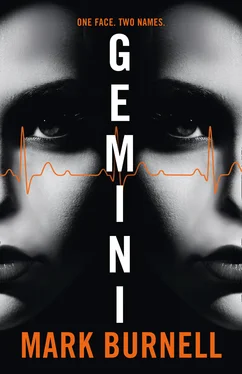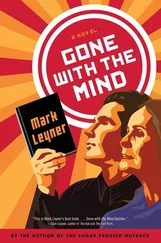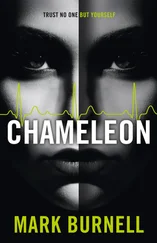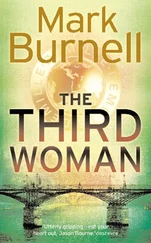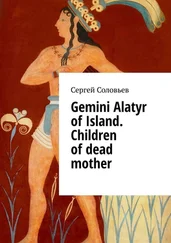She looked at some of the internationals. Barry Ferguson, British, from Gateshead, ex-SAS, ex-husband to a battered wife, ex-father of three, ex-inmate of Durham Prison. Troy Carter from Maine – unlike Ferguson, he’d never made the grade as a professional soldier. He’d gone to the Balkans to prove himself. And had failed again. Within a fortnight a landmine had scattered him over his colleagues. Fabrice Blanc, a native of Marseille, had deserted the French Foreign Legion specifically to go to the Balkans.
‘I need to fight to live,’ he’d claimed.
It was a phrase with resonance among the Inter Milan hard core. How did mild-mannered Vojislav Brankovic, the baker’s son, become a vicious murderer? How did a boy with a beautiful Croat girlfriend end up stabbing other Croats in the face simply for being Croat? Stephanie knew part of the answer: in war, some men found themselves.
There was a picture of Harald Gross kicking a severed Bosniak head into a makeshift goal with spent shell cases for posts. In the background there were several blurred onlookers, their grins smudged. The rest of the mercenaries were European apart from a Canadian, two Australians and a South African. At any given moment the internationals accounted for between thirty and forty per cent of the Inter Milan force. Mercenaries they might have been, but one thing was clear: they were there for the fighting, not for the money.
On the screen to her right Stephanie touched a box with a woman’s face. She came to life, her expression as harrowed in motion as it had been frozen. A box of text in the right-hand corner informed Stephanie that the woman was from a small village close to Foca, in eastern Bosnia, a town that had been ethnically cleansed in 1992. Over her testimony, another woman translated into English.
‘They came in the morning. They beat up anybody who got in their way. One of them shot a farmer in front of his wife and children. When the wife attacked the gunman, another one intervened and cut her throat. The children were hysterical. Their mother was in a pool of blood in the dirt. Other men took the children away. The leader told us we were to be transported to Foca, where we would join the people of the town, and then we would all leave the district together. They said we had one hour to make our preparations. We went home. An hour later we gathered in the market square. I had a bag, packed with … I don’t know what … anything … I couldn’t think. My husband carried a sack with bread and clothes. Then there was a delay, a lot of confusion. They made us sit down in the square. It was very hot. We were there for some hours.’
Stephanie reckoned the woman was in her late forties. The interview was taking place in an institutional room: cream gloss walls, a smooth concrete floor with a single table at its centre. She was talking to another woman whose back was to camera. Stephanie paused the footage and checked the directory; the interview had been conducted in a Bologna police cell. When the action resumed, so did the clock in the bottom left-hand corner: 14.14 on 11 April 1997.
‘They asked me what I did. I said I was a teacher. The one with no teeth told me to show him where the school was. He said they would need a place to keep us for the night because we would not go to Foca until the next day. I got up from the ground to take him to the school. That was the last time I saw my husband alive. Four other men came with us. It was a small building with one large classroom and two small utility rooms. The man with no teeth told me to take off my clothes. I refused and one of the others hit me across the cheek with the butt of his rifle. Then they stripped me and raped me.’
The other woman asked a question that Stephanie couldn’t hear. The first woman shook her head defiantly and continued, her voice a sobering monotone.
‘No, it was all of them. The man with no teeth went first. When he was finished, the others followed. I tried not to make a sound because I knew they would hear me outside. Later some of the men went out, then others came in. Sometimes it was one of them, sometimes two or three. They brought in other women. Some of the women were older than me, some were just girls.
‘They brought in the doctor’s wife late in the afternoon. After four or five men had raped her, they brought in her husband. They made him watch as more men raped her. Then they slit his throat in front of her. Like me, she survived the massacre the next day. I know that because she made it to Athens where she had some family. But she’s dead now. She killed herself.
‘During the night they were drinking. We heard screams and shouts in the square. We didn’t know what they were doing until the morning when we saw the bodies. They’d knifed some of the old men and hung some of the boys. One of them was six. By the end I don’t think I felt a thing. I don’t know how many of them raped me, or how many times. It doesn’t matter.
‘When they left they shot some of those who were still in the square. But not all of them. It was the same in the school-house. They murdered a few and let the rest live. To tell others what had happened, to spread the fear. I can’t forgive any of them for anything. But in particular, I can’t forgive them for not shooting me. For letting me live. I don’t care what any of the other survivors say, that was the worst thing they did to me. I think about suicide every day, but I can’t do it. It’s a sin. I want to die, though. As soon as possible so I won’t have to remember.’
She was staring, unblinking. Not at the woman opposite her, but at the camera. At Stephanie.
Another box on the right-hand screen, another face, this one a man’s, an Albanian from Kosovo. The interview was recorded in a community centre in Hamburg on 13 June 2001. There were other immigrants in the frame. The man spoke slow, clear English.
‘They kicked us out of our houses, robbed us, then beat us up. They separated the men of fighting age from the rest and told us they would be taken to a secure camp. They said they would be well treated, but we didn’t believe them. We already knew they were butchers. There was panic, women clinging to their husbands. The terrorists – that is what they were, not soldiers – beat the women back. But there was no controlling them. There was one woman, she was on her knees clinging to her husband’s legs with one arm and her little boy with the other. The leader of the terrorists, a big man with a shaved head, tried to pull her off her husband. I could see how angry this monster was. His eyes were dead. He grabbed her by the hair and pulled but she would not let go. Instead she spat at him. And so he shot her husband. Just like that. As though he was taking the top off a bottle.
‘Before the woman had time to react, he grabbed the little boy, his face splattered with his father’s blood. The savage held him tight, put a gun to his head and threatened to shoot unless there was order. Nobody said anything. Nobody protested any more. The men who had been singled out got on the bus and were driven away. Those of us who were left – the sick, the old, the women and children – we watched, some crying, some too terrified to cry.
‘The man said we had to pay for the trouble we had caused. Fifteen thousand deutschmarks for the boy. I was one of those detailed to collect the cash. He gave us half an hour to find the money. What could we do? They had already robbed us. But they knew we would find cash that was hidden. We went from house to house, collecting what we could. When we returned we had just over ten thousand deutschmarks, much more than I expected. I was the one who handed the money to him. He counted it and said, “Ten thousand is not enough. I said fifteen.” Somebody else said there was no more, that it was all we had. He shrugged and said, “Okay. I’m a fair man. A deal is a deal. You give me two thirds of the money, I give you two thirds of the boy.” He decapitated the child in front of us. When they left they took their third away – the head – and left his little body on the ground next to his father.’
Читать дальше
